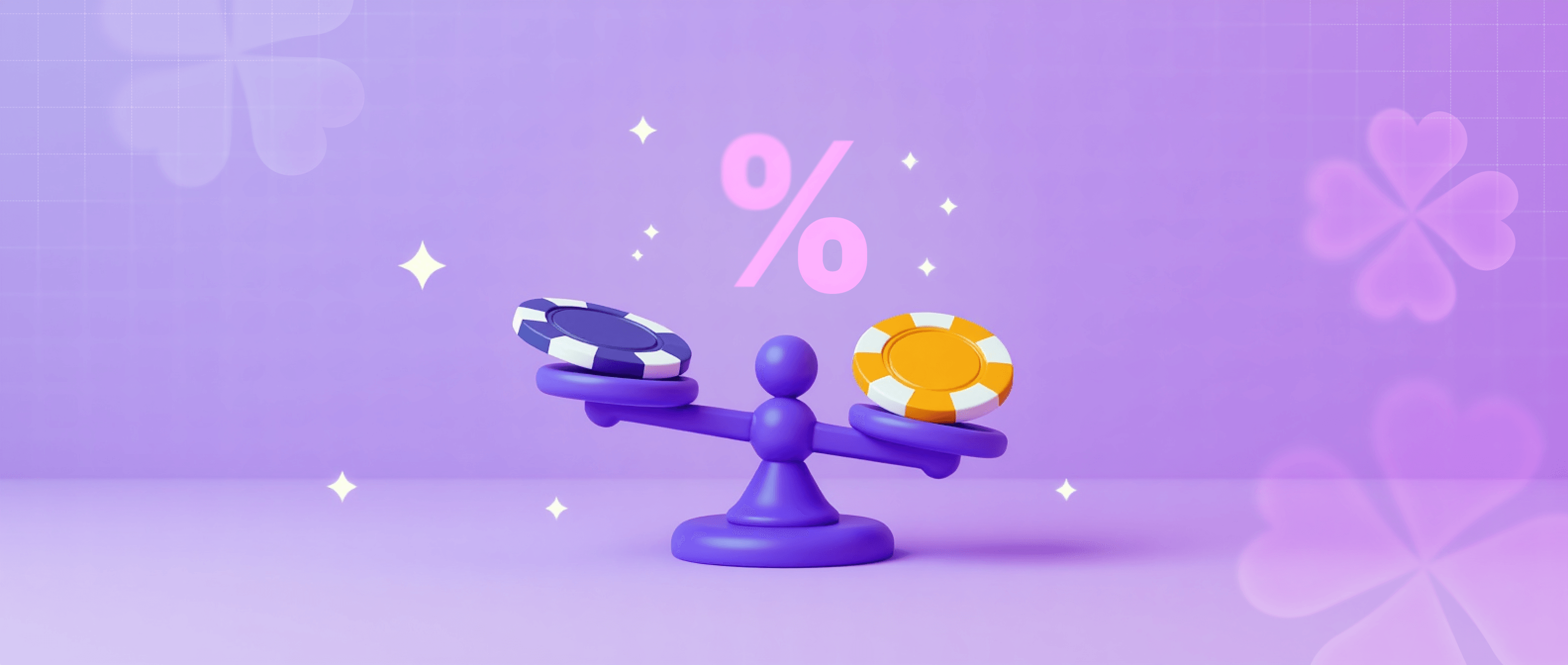
Odds
Odds — the likelihood of a gambling outcome and the price the casino offers for it, usually shown as payout ratios or probabilities. In casino games, odds describe how often a result should occur and how much it pays when it hits, helping a player compare bets, understand house edge, and plan risk and bankroll.

Understanding Odds
In gambling, Odds meaning covers both chance and value: the statistical probability of an event and the payout attached to it. The formal Odds definition in casino terms is the ratio between expected frequency and the reward offered, which together imply the house edge. Knowing odds matters because it clarifies which bets are riskier, which are fairer, and how variance affects your bankroll. At 101RTP, you’ll find expert reviews, best casinos and slots, plus our Slot Simulator and Bonus Value Score tools to test stakes, model sessions, and estimate how odds interact with RTP and wagering requirements.
Examples of Odds
Here are common ways odds show up across casino games:
- Roulette: European single number pays 35:1, but the true probability is 1/37 (~2.70%); the mismatch creates the house edge.
- Blackjack: Winning a standard hand might be close to 42–49% depending on rules and strategy; a natural blackjack pays 3:2 (or 6:5 in worse games), changing long-term odds for the player.
- Craps: The pass line wins about 49.3%; taking “odds” behind it pays true odds (no house edge) but the base bet still carries edge.
- Slots: A 96% RTP slot doesn’t quote odds per event, but the math implies many small hits and rare large wins; volatility determines how streaky outcomes feel.
FAQs
What are Odds in a casino?
Odds meaning in a casino is the relationship between how likely an outcome is and the payout offered for it. This term helps a player compare bets, estimate risk, and understand what is driving the house edge. Odds definition can be expressed as ratios, percentages, or implied probabilities.
How do Odds relate to RTP and house edge?
Odds feed into the expected value of each bet. When aggregated across all outcomes, they determine RTP for a game and the casino’s house edge. Higher house edge means the posted odds and payouts favor the casino more, affecting a player’s long-term results and bankroll management in gambling.
Can I convert Odds to probability and back?
Yes. Fractional odds a/b imply probability b/(a+b). Decimal odds D imply probability 1/D. American odds convert using standard formulas to get implied probability. Converting lets a player compare bets across casino games and formats and answer the basic what is more likely question in a consistent way.
Is a higher payout always better Odds for the player?
Not necessarily. Bigger payouts often come with lower probabilities, increasing variance. A 35:1 roulette single number looks attractive but hits rarely. Better for the player means better value—favorable balance of probability and payout—not just a big prize. Compare implied probabilities to true chances to judge fairness.
Do slots have posted Odds like table games?
Usually no. Slots advertise RTP and sometimes volatility, not exact outcome odds. Each symbol and bonus has programmed probabilities under the hood. For the player, what is practical is to use RTP, volatility, and paytables to infer how often small, medium, and large wins may occur over time.
Why do casinos quote Odds as ratios instead of percentages?
Ratios like 35:1 tie directly to payouts and table signage, making it easy to see what a winning bet pays. Percentages are better for understanding probability and house edge. Smart gambling compares both views to judge whether a casino bet offers fair value for the risk taken.
How can I practice Odds and variance before risking money?
Use trackers and simulators to see how probability feels over sessions. On 101RTP, our Slot Simulator lets you enter stake and bankroll, pick a slot, and model outcomes to understand swings. This helps a player set expectations and choose casino games that match risk tolerance and session length.
Do Odds affect bonus wagering and strategy?
Yes. Bonus clearing depends on game eligibility and how odds translate into turnover and volatility. Lower-variance odds can smooth wagering; high volatility can spike risk. 101RTP’s reviews and Bonus Value Score help identify casinos, slots, and stakes where the odds profile gives you a clearer path to profit.
